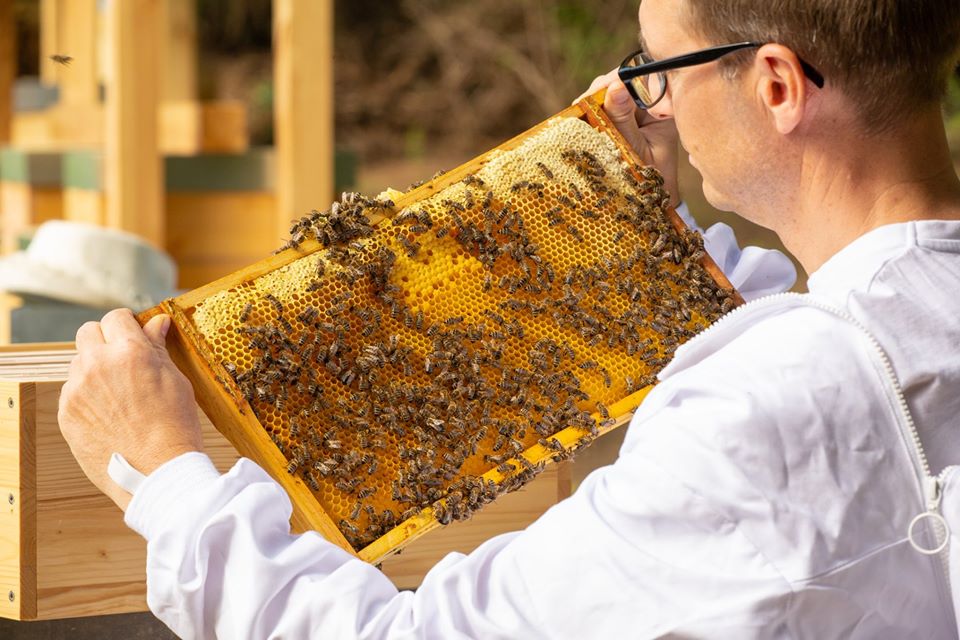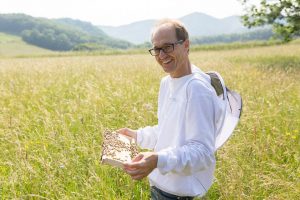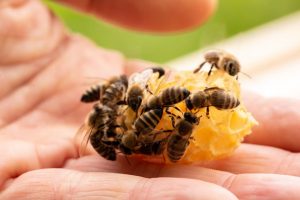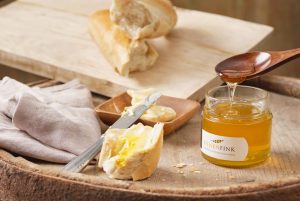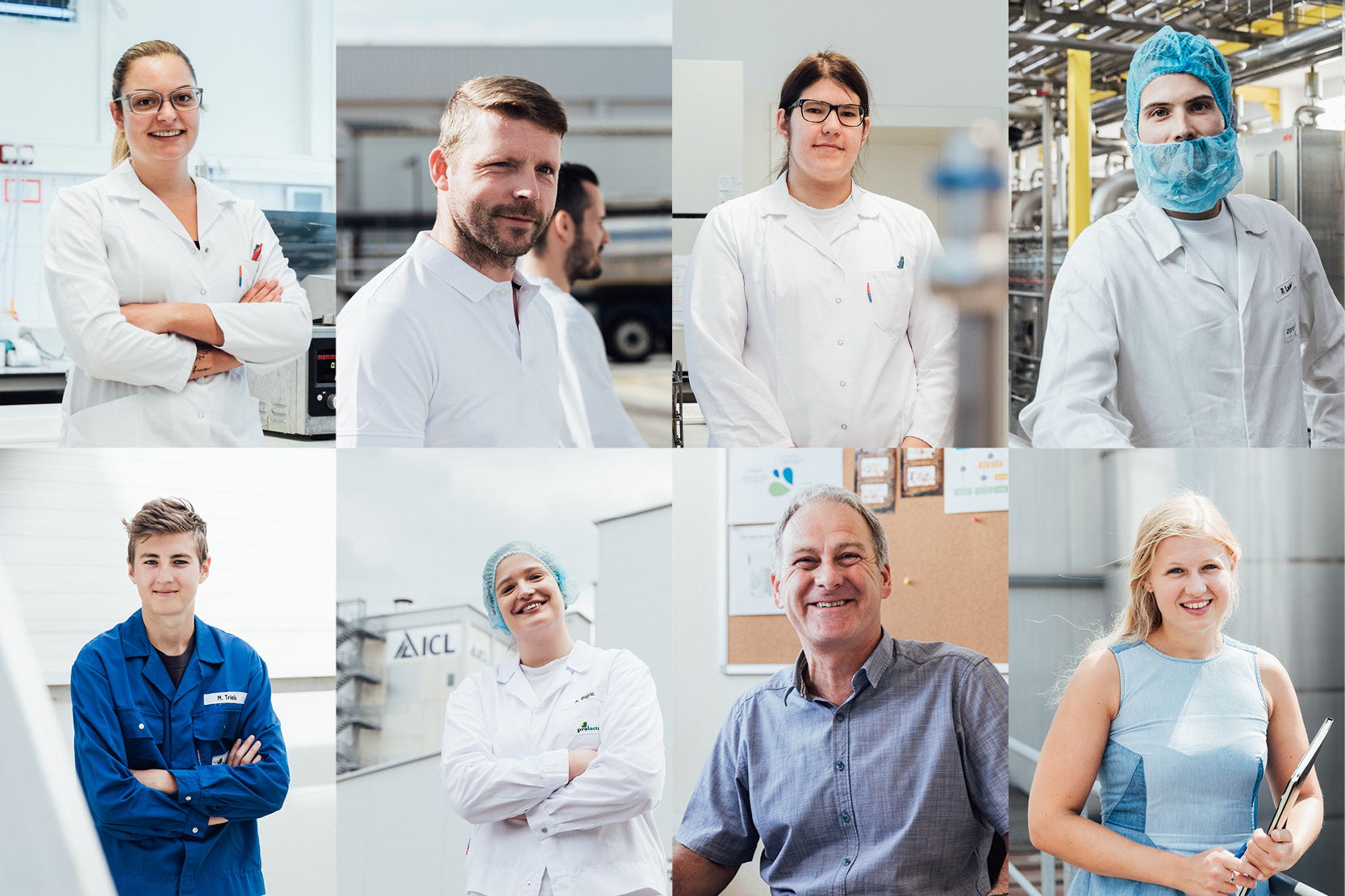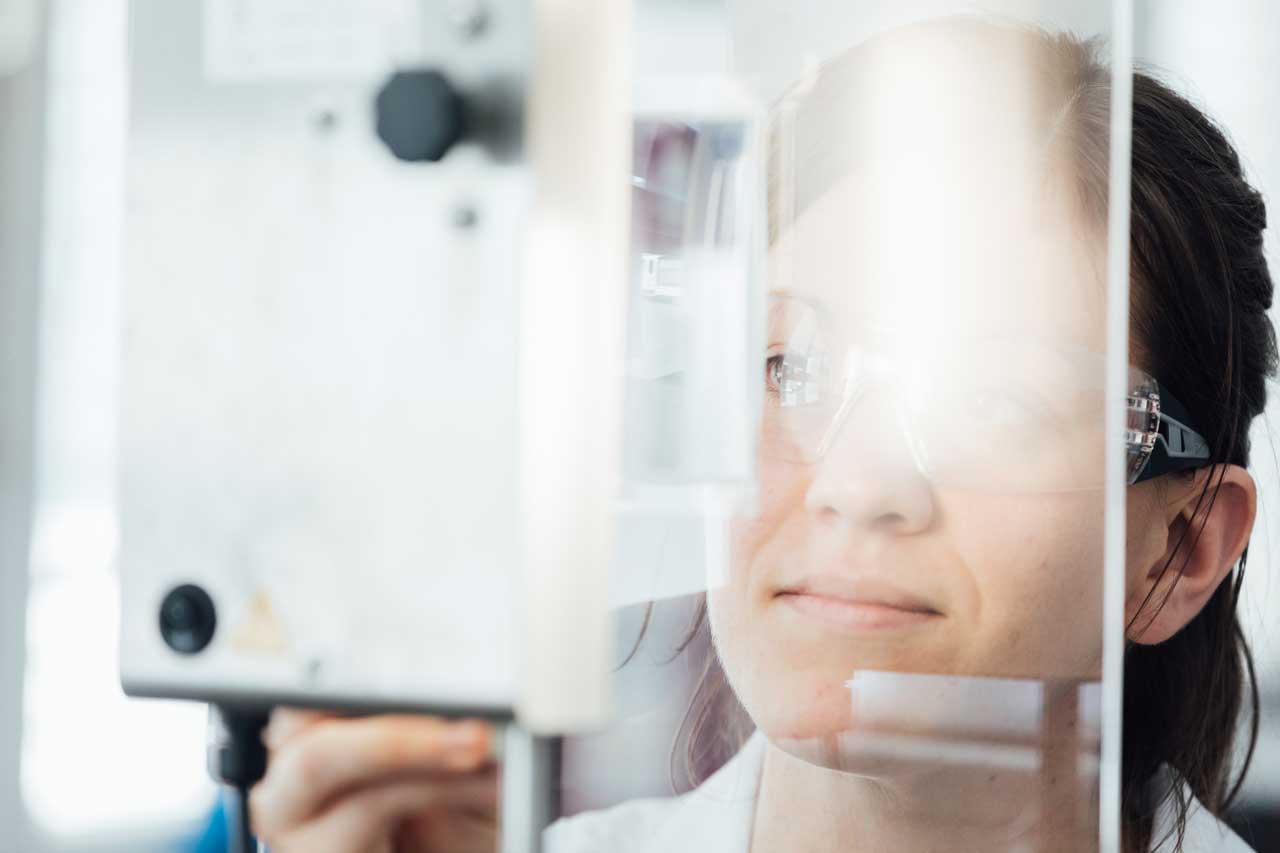Bees help maintain the ecological system and the tightly woven network of biodiversity. If wild plants could not reproduce, there would be a lack of homes and food for many animals, such as cows, goats and sheep. As a producer of milk powder from cow, goat and sheep’s milk we want to comply with our vision of nourishing humanity naturally by first making sure the animals’ requirements are met. Proper (natural) feeding and the suitable environment are two motives amongst many other important factors.
Therefore we did not need to think twice about supporting a local producer of organic honey BIENENFINK that does not contain any traces of antibiotics or other chemical treatment agents. Georg Fink answered some of our questions regarding his beekeeping business and his values and also shared some fun facts about bees with us. He is 49 years old, father of a 14-year-old daughter and a proud Styrian. For three years, bees and their valuable products have become Georg Fink’s profession. At the moment he looks after about 150 bee colonies.
What differentiates you from other beekeepers?
Like many beekeepers, I am connected by love and respect for the superorganism bee colony. It is incomparable how the bees of a colony work together. They act like a single creature made up of thousands of individual animals. What may distinguish me from other beekeepers is the desire to care for each beehive as individually and sustainably as possible. This and the organic certification mean additional effort, which I gladly accept for the benefit of my bees and the taste of their products.
What are your goals as a beekeeper?
My primary goals are the greatest possible bee welfare and the highest possible quality of honey, propolis and pollen. The mentioned individual care of each bee colony, the use of biomechanical methods instead of chemical aids, organic-certification, ongoing training, gentle processing and other things bring me closer to these goals.
What are your challenges as a beekeeper?
At peak times, the scope of my work is so great that family and leisure time must be put off The insanely low domestic price level for honey and co also makes beekeeping an economic challenge. I am glad that there are many people who are willing to pay fair prices for high-quality food. Only thanks to them, my kind of beekeeping is possible at all.
Can anyone become a beekeeper?
Except for people with a strong bee venom allergy, anyone can become one. But I would like to warn that this activity could potentially become addictive 😉 Nowadays, the health challenges for the domestic honey bee are an important aspect. Beekeeping schools provide the necessary theoretical and practical training (e. g. those in Graz). If you are lucky enough you could benefit from the knowledge of an experienced beekeeper.
What type of honey do you harvest?
Mainly the weather and vegetation of the harvest year determine the type. BIENENFINK usually produces various types of flower honey, which is harvested and hurled separately according to the stand. Often, they consist of annual harvests with a mixture of the flowers of a whole season. These are the most balanced in terms of taste. Also, acacia, lime or sunflower honey are promising. Chestnut honey rarely works on my stands. Of course, forest honey also plays a major role in our area. For some variety, we add e.g. nuts or stir the honey (cream honey).
3 fun facts:
1. Honey bees can achieve flight speed of up to 30 km/h (without honey/pollen load). This allows them to overtake a car in evening traffic.
2. A bee needs to visit around 20 million flowers to collect pollens for one kilogram of honey.
3. A bee colony consumes about one kilogram of honey a day.
Support BIENENFINK:
https://www.bienenfink.at/
https://www.facebook.com/BIENENFINK
https://www.instagram.com/bioimkerei.bienenfink/?hl=de


